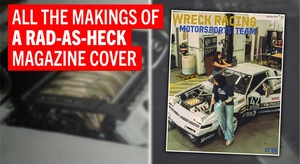alfadriver said:
Beer Baron said:
There just isn't as much variety in the characters of bourbon as other whiskies. Corn is not as nice of a grain. Requiring >50% corn and aging in new charred oak really defines much of the character.
I disagree about your characterization of corn and how it's done. Given the definition of what the various whiskeys are here in the US, all grains have the same constraints- it's not as if rye has much variety in how it plays out, too- pepper spice, licorice, etc.
But both grains are being experimented via the actual grain strain as well as how it's being distilled. The big companies use column stills, which takes a lot of the character out for the sake of efficiency- so other than the really loud notes that make it through, it's up to the oak.
The smaller ones using pot stills allowing a lot of different flavors coming through. And they are also doing more experimentation with the proof going into the barrel, how they are tempering it down, etc.
Let alone the grain variety they are choosing- I'd really like to find some blue corn bourbon, or some really old corn bourbon- not just the yellow dent corn.
We've done a bit playing around on our own. We've also gotten samples of varieties of raw distillate from a mega-distillery*. We've played around with blind and non-blind taste tests of things including 100% malt, and 95%+ rye, wheat, and corn (using varying amounts of malt for enzymes).
Malt and rye definitely have a lot more flavor out the gate than wheat or corn. Wheat is very soft and delicate, almost rum like.
Corn has more sulfurous compounds and other things that make for a noticeably harsher distillate. You could clean this up by going very deep into the cuts, but then you're stripping out a lot of positive flavor. With other grains, you can be more liberal with your cuts and get interesting flavors that may need aging time to even out, but won't be as harsh
Malt whiskies definitely allow for a LOT more options. You're using a malted grain instead of raw, so right there you've got control and variety in flavor that will make it into your distillate. We did a malt whisky wash with a healthy proportion of Special B malt (a dark, Belgian caramel malt), and there was a point in the run where that flavor just jumped out.
International whiskies are not constrained by the same laws of having to use new charred oak. So you get malt whiskies using a variety of barrels for aging. The barrels as a whole leave less of an over barrel char and astringent character.
Sure, there isn't necessarily more variety with rye whiskeys, but you also don't see people collecting dozens or hundreds of different rye whiskeys. Malt whiskies have a far more varied flavor range.
*(For those who don't know, the majority of liquor in the U.S. comes from only a handful of massive distilling companies. Smaller spirits companies then frequently customize and make this their own through blending and/or aging)






































